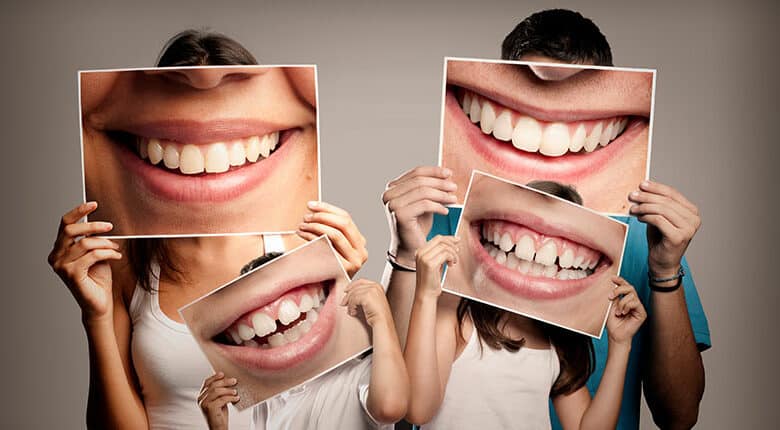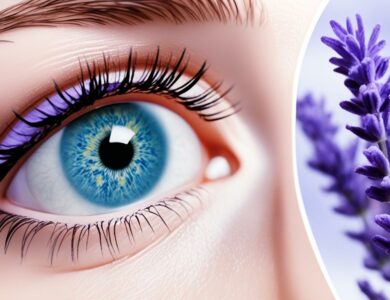
Oral health is an essential aspect of overall well-being that often gets overlooked. Maintaining good dental hygiene is crucial not only for a confident smile but also for preventing various dental problems that can impact our daily lives. In this article, we will explore effective dental hygiene tips to help you achieve a healthy and radiant smile.
The Importance of Dental Hygiene
Oral Health and Overall Health
Good dental hygiene goes beyond just having a beautiful smile; it directly impacts our overall health. Poor oral hygiene can lead to various health issues, including cardiovascular disease, respiratory infections, and even diabetes. The mouth is a gateway to the body, making it imperative to keep it clean and healthy.
Preventing Dental Problems
Practicing effective dental hygiene can prevent a host of dental problems such as cavities, gum disease, and tooth loss. Regularly caring for your teeth and gums can save you from unnecessary pain and costly dental procedures.
Brushing Techniques for Healthy Teeth
Choosing the Right Toothbrush and Toothpaste
Selecting the right toothbrush and toothpaste is the first step towards maintaining proper dental hygiene. Opt for a toothbrush with soft bristles and a toothpaste containing fluoride for the best results.
Proper Brushing Technique
Brushing your teeth properly is vital for effective cleaning. Hold your toothbrush at a 45-degree angle and use gentle circular motions to clean all tooth surfaces thoroughly. Don’t forget to brush your tongue and the roof of your mouth to eliminate bacteria.
Frequency of Brushing
Brushing your teeth twice a day is the standard recommendation, but it’s even better if you can do it after every meal to remove food particles and plaque effectively.
The Art of Flossing
Benefits of Flossing
Flossing complements brushing by reaching the spaces between your teeth and along the gum line that a toothbrush can’t access. This helps prevent plaque buildup and reduces the risk of gum disease.
Correct Flossing Technique
Use about 18 inches of dental floss and gently slide it between your teeth using a back-and-forth motion. Curve the floss around each tooth in a “C” shape and ensure it goes below the gum line.
Types of Dental Floss
There are various types of dental floss available, including waxed, unwaxed, flavored, and dental tape. Experiment with different types to find the one that suits you best.
Mouthwash and its Role in Dental Hygiene
Benefits of Mouthwash
Mouthwash not only freshens your breath but also reduces the amount of acid in your mouth, remineralizes teeth, and cleans hard-to-reach areas.
How to Use Mouthwash Correctly
Pour the recommended amount of mouthwash into a cup and rinse your mouth for about 30 seconds. Make sure not to swallow the mouthwash and avoid eating or drinking for at least 30 minutes after use.
Different Types of Mouthwash
There are various mouthwashes available, including antiseptic, fluoride, and natural mouthwashes. Choose one that caters to your specific dental needs.
Importance of Regular Dental Check-ups
Why Regular Check-ups are Crucial
Regular dental check-ups are essential for detecting and preventing dental issues early on. Dentists can identify problems such as cavities, gum disease, and oral cancer in their initial stages, making them easier to treat.
Frequency of Dental Visits
Most dentists recommend a check-up every six months. However, if you have specific dental problems or a history of oral health issues, your dentist might suggest more frequent visits.
What to Expect During a Check-up
During a dental check-up, your dentist will examine your teeth, gums, and mouth. X-rays may be taken to get a comprehensive view of your dental health. Your dentist will also clean your teeth and provide valuable tips for improving your dental hygiene.
The Role of Diet in Dental Health
Foods to Avoid for Good Oral Health
Certain foods and beverages can harm your teeth, such as sugary snacks, carbonated drinks, and acidic foods. Limiting their consumption can protect your dental health.
Foods That Promote Dental Health
Including foods rich in calcium, vitamins, and minerals in your diet can strengthen your teeth and gums. Foods like dairy products, leafy greens, and nuts contribute to excellent oral health.
The Impact of Smoking on Oral Health
Oral Health Risks of Smoking
Smoking is harmful not only for your overall health but also for your dental health. It increases the risk of gum disease, tooth decay, and oral cancer.
How to Quit Smoking for Better Dental Hygiene
Quitting smoking is one of the best things you can do for your oral health. Seek support from friends, family, or professionals to help you kick the habit.
Dental Hygiene Tips for Children
Establishing Good Dental Habits Early
Encourage your children to brush their teeth regularly and make it a fun activity. Lead by example and show them the importance of good dental hygiene.
Fun Ways to Teach Children About Dental Care
Make dental care exciting by using colorful toothbrushes, flavored toothpaste, and storytelling to emphasize the significance of taking care of their teeth.
The Connection Between Dental Hygiene and Bad Breath
Causes of Bad Breath
Bad breath can result from poor dental hygiene, certain foods, and other underlying health issues. Identifying the cause is essential for effective treatment.
Tips to Prevent Bad Breath
Maintaining good dental hygiene, drinking plenty of water, and avoiding strong-smelling foods can help prevent bad breath.
Dental Hygiene for Seniors
Oral Health Challenges in Seniors
As people age, they face specific oral health challenges such as dry mouth, gum recession, and tooth sensitivity.
Tips for Maintaining Oral Health in Old Age
Regular dental check-ups, using a soft-bristled toothbrush, and considering dental implants or dentures can help seniors maintain their dental health.
The Relationship Between Dental Hygiene and Gum Disease
What is Gum Disease?
Gum disease, also known as periodontal disease, is an infection that affects the tissues and bones supporting the teeth. It can lead to tooth loss if left untreated.
Preventive Measures Against Gum Disease
Brushing and flossing regularly, using an antiseptic mouthwash, and quitting smoking can reduce the risk of developing gum disease.
How Stress Affects Dental Health
Understanding the Mind-Body Connection
Stress can manifest physically, affecting dental health by causing teeth grinding, gum disease, and canker sores.
Coping Mechanisms for Stress-Related Dental Issues
Practicing stress-reduction techniques like meditation, exercise, and seeking professional help can alleviate stress and improve oral health.
Natural Remedies for Dental Health
Aloe Vera for Oral Health
Aloe vera has natural anti-inflammatory and antimicrobial properties, making it beneficial for gum health.
Oil Pulling Benefits
Oil pulling with coconut oil can help reduce harmful bacteria in the mouth and promote healthier teeth and gums.
Herbal Solutions for Dental Hygiene
Herbs like neem, peppermint, and clove have been used for centuries for their oral health benefits.
Conclusion
Maintaining effective dental hygiene is vital for a healthy and confident smile. By following these tips, you can keep your teeth and gums in top-notch condition, preventing various dental problems and improving your overall health.
FAQs
1. How often should I brush my teeth? Brush your teeth at least twice a day, ideally after every meal, for the best results.
2. Can mouthwash replace brushing and flossing? No, mouthwash complements brushing and flossing but cannot replace them. It’s essential to continue these habits for optimal oral health.
3. Is it possible to reverse gum disease? Early-stage gum disease can often be reversed through proper dental care, but advanced cases may require professional treatment.
4. Are natural remedies effective for dental health? Natural remedies can be helpful as part of a comprehensive dental care routine, but they should not replace professional dental care.
5. How does smoking affect dental health? Smoking increases the risk of gum disease, tooth decay, and oral cancer, leading to serious dental health issues.



